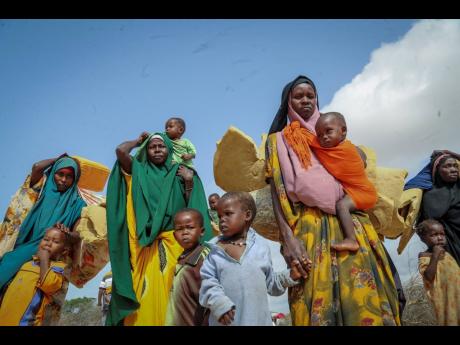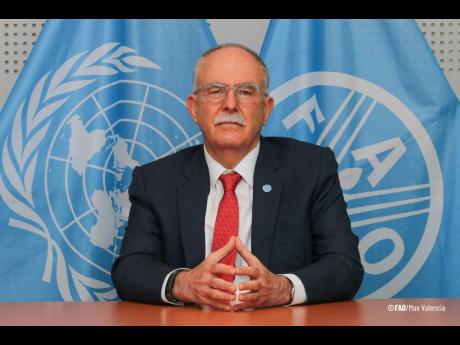Julio Berdegué | Hunger – Global humanitarian crisis
Nearly one in 10 people on this planet live with hunger. In just two years – from 2019 to 2021 – an additional 150 million people were thrust into hunger. The total number of undernourished people has reached the staggering figure of more than 828 million, while 22 per cent of girls and boys suffer from chronic malnutrition.
In Latin America and the Caribbean, 56.5 million people are regularly deprived of the necessary food to have even the minimum energy that a human being needs to maintain a normal life; they live undernourished, or, in plain words, they suffer from hunger.
It is estimated that 93.5 million people suffer severe food insecurity and 267.7 million in moderate or severe food insecurity. In total, almost four out of every 10 inhabitants of Latin America and the Caribbean do not have enough to eat.
At the same time, 106 million adults are living with obesity, largely because this is the region where a healthy diet is most expensive: it costs 22 per cent more than what it does in Europe or the United States and Canada, for example. And this happens in a region that is the main net exporter of food on the planet, and that produces enough food to satisfy the basic energy requirements of 1,300 million people, twice its population.
These are some of the figures included in the new edition of The State of Food Security and Nutrition in the World 2022, a report published by five United Nations agencies, under the coordination of the Food and Agriculture Organization of the United Nations (FAO).
SETBACKS
We have already seen seven years of setbacks in the fight against hunger in the world and in Latin America and the Caribbean. This is due to climate change, to conflicts and wars, to the COVID-19 pandemic, to weak economic growth, and above all, to inequalities, but (and this must be said forcefully) also to indifference.
A contributing factor that aggravates food and nutritional insecurity is the misguided support that the agri-food sector receives in large parts of the world, especially in high and medium-high income countries. Every year, some US $630 billion is allocated to support the agrifood sector, mainly through direct transfers that tend to disproportionately benefit large companies and higher-income farmers.
This would be a different world, and we would not have to lament the horrific hunger figures, if that same financing were reoriented to promote the population’s access to sufficient, safe,, and healthy food, and to facilitate and encourage innovations so that agrifood systems are more efficient, inclusive, sustainable and resilient.
The new United Nations report shows how the reorientation of current support for agriculture towards other objectives and uses would be enough to improve economic access to healthy diets, increase the income of farmers, and reduce hunger, extreme poverty, and greenhouse gas emissions. Latin America and the Caribbean is one of the regions that would benefit the most from such a change in agri-food policies.
The tragedy, then, is not only the growing number of children and adults who experience the drama of hunger and malnutrition. It is also that the solution is there, within reach of our hands, but we do not see it, or we do not want to see it.
- Julio Berdegué is assistant director-general of FAO and regional representative for Latin America and the Caribbean. Follow him on Twitter: @JBerdegueFAO


